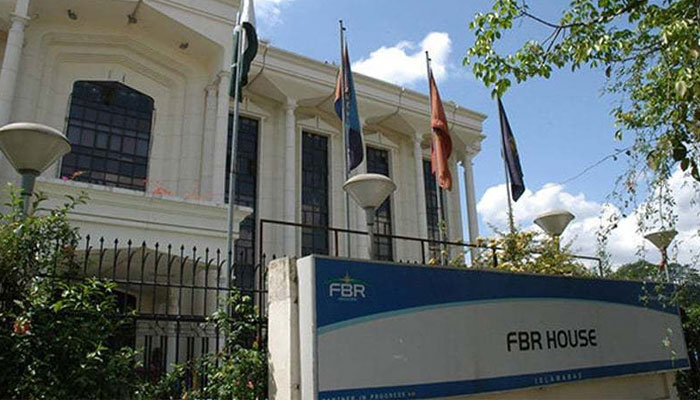FBR’s tobacco tracking system faces hurdles from smaller firms
ISLAMABAD: Federal Board of Revenue (FBR) has made uneven progress in implementing a track-and-trace system for tobacco products, with major manufacturers like Pakistan Tobacco Company (PTC) and Philip Morris on board but several smaller players lagging behind, industry officials said on Saturday.
The initiative, aimed at curbing tax evasion and illicit trade in the sector, has seen PTC outfit 19 production lines with the system, PMI with 7, CM Tobacco Industries with 4 and, Khyber Tobacco Company with 9. Other manufacturers, including Civil Tobacco, Frontier Leaf Tobacco, Falcon Cigarettes Industry, Indus Tobacco Company and Maneri Tobacco International, however, have only implemented it on one line each, despite the FBR signing memorandums of understanding (MoUs) with 26 companies in total.
However, the rest of the industry has either refused to comply or shown little progress in adopting the system, citing technical and financial difficulties.
The partial implementation raises concerns about the effectiveness of the track-and-trace system, which relies on barcodes, unique identification numbers, and a central monitoring system to track the movement of tobacco products from production to sale.
The FBR, responsible for collecting various taxes including income tax and sales tax, has faced challenges in tracking and tracing goods within Pakistan, leading to significant revenue losses. The track-and-trace system is seen as a key tool to address this issue, with initial plans to cover not only tobacco but also sugar, fertilizer, and cement in the first phase.
"The track and trace system must be implemented across the industry for it to be successful and yield the desired results," an industry official said. "Secondly, comprehensive and effective enforcement needs to be carried out to ensure that no pack of cigarettes is sold without a stamp."
However, concerns remain about the unique nature of Pakistan's illicit tobacco trade, characterized by the prevalence of counterfeit and smuggled packs alongside locally manufactured tax-evaded products. Learning from other countries' experiences and ensuring strong enforcement will be crucial to the success of the system, the industry official added.
The FBR has set a December 2023 deadline for full implementation, but industry observers are skeptical.
"It seems that the tax machinery might remain unable to fulfil its obligations within the desired timelines," the official said.
Industry official said the FBR needs to take strict action against the non-compliant manufacturers and enforce the system across the industry. It should also seek the support of other stakeholders, such as the Inland Revenue Enforcement Network (IREN), the customs department, and the law enforcement agencies, to ensure the success of the system.
The partial implementation of the track-and-trace system highlights the challenges Pakistan faces in tackling tax evasion and illicit trade in the tobacco sector. The system has been successful in other countries, such as Turkey, Brazil, and Kenya, where it has helped reduce tax evasion and illicit trade in the tobacco industry. While the initiative holds promise for improving revenue collection and transparency, its success will hinge on addressing implementation gaps and ensuring robust enforcement.
-
 Giant Tortoise Reintroduced To Island After Almost 200 Years
Giant Tortoise Reintroduced To Island After Almost 200 Years -
 Eric Dane Drops Raw Confession For Rebecca Gayheart In Final Interview
Eric Dane Drops Raw Confession For Rebecca Gayheart In Final Interview -
 Trump Announces New 10% Global Tariff After Supreme Court Setback
Trump Announces New 10% Global Tariff After Supreme Court Setback -
 Influencer Dies Days After Plastic Surgery: Are Cosmetic Procedures Really Safe?
Influencer Dies Days After Plastic Surgery: Are Cosmetic Procedures Really Safe? -
 Eric Dane Confesses Heartbreaking Regret About Daughters' Weddings Before Death
Eric Dane Confesses Heartbreaking Regret About Daughters' Weddings Before Death -
 Nicole 'Snooki' Polizzi Reveals Stage 1 Cervical Cancer Diagnosis
Nicole 'Snooki' Polizzi Reveals Stage 1 Cervical Cancer Diagnosis -
 Hilary Duff’s Son Roasts Her Outfit In New Album Interview
Hilary Duff’s Son Roasts Her Outfit In New Album Interview -
 Alexandra Daddario, Andrew Form Part Ways After 3 Years Of Marriage
Alexandra Daddario, Andrew Form Part Ways After 3 Years Of Marriage -
 Eric Dane Rejected Sex Symbol Label
Eric Dane Rejected Sex Symbol Label -
 Avan Jogia Says Life With Fiancee Halsey Feels Like 'coming Home'
Avan Jogia Says Life With Fiancee Halsey Feels Like 'coming Home' -
 Kate Middleton's Role In Handling Prince William And Harry Feud Revealed
Kate Middleton's Role In Handling Prince William And Harry Feud Revealed -
 Tucker Carlson Says Passport Seized, Staff Member Questioned At Israel Airport
Tucker Carlson Says Passport Seized, Staff Member Questioned At Israel Airport -
 David, Victoria Beckham Gushes Over 'fiercely Loyal' Son Cruz On Special Day
David, Victoria Beckham Gushes Over 'fiercely Loyal' Son Cruz On Special Day -
 Taylor Swift Made Sure Jodie Turner-Smith's Little Girl Had A Special Day On 'Opalite' Music Video Set
Taylor Swift Made Sure Jodie Turner-Smith's Little Girl Had A Special Day On 'Opalite' Music Video Set -
 Eric Dane Says Touching Goodbye To Daughters Billie And Georgia In New Netflix Documentary
Eric Dane Says Touching Goodbye To Daughters Billie And Georgia In New Netflix Documentary -
 Channing Tatum Reveals What He Told Daughter After Violent Incident At School
Channing Tatum Reveals What He Told Daughter After Violent Incident At School




